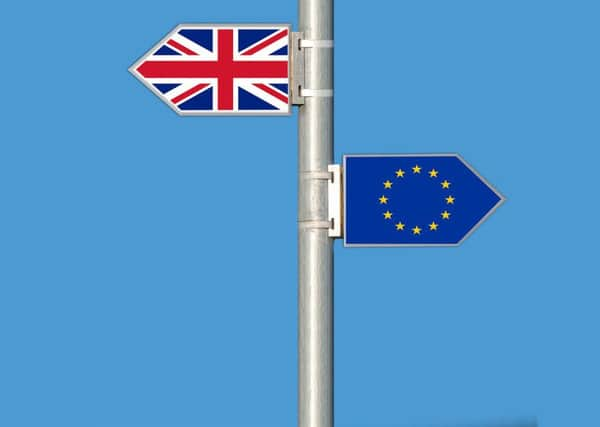Q&A: WHAT NOW AFTER VOTE TO LEAVE EU?


Q: Could there be another referendum?
A: After the tumultuous events of recent days, the idea of going through it all again may seem hard to swallow but the suggestion is being seriously canvassed in some quarters. Health Secretary Jeremy Hunt, a possible contender for the Conservative leadership, has said the Government should not trigger the formal process of leaving until it has sorted out a new set of arrangements with Brussels - dealing with matters such as access to the single market - which should then be put to voters to endorse either by way of a second referendum or a general election.
At the present moment it’s hard to see other EU leaders - whose message to the UK has been “get on with it” - agreeing. Any suggestion that the outcome of the referendum could be reversed or set aside would also provoke intense hostility among the Leave camp. But then again these are strange times, so who knows?
Q: Does the country have a fully functioning Government?
Advertisement
Hide AdAdvertisement
Hide AdA: David Cameron remains Prime Minister until a successor is enthroned by the Conservative Party - due to take place on September 2 - and much of the day-to-day business of government will continue as normal. Chancellor George Osborne has surfaced for the first time since the vote last Thursday in an attempt to reassure the markets.
That said, much of Mr Cameron’s authority drained away with his announcement that he is to stand down, and it is difficult to see how he can take any major political initiatives during his remaining time in office. Most notably, on the big issue of how the separation with Brussels will be managed, he has made it clear that is a matter for the next occupant of No 10.
Q: When will that process begin?
A: In order to start the formal uncoupling, the Government has to invoke Article 50 of the Lisbon Treaty, which sets in train a period of negotiations of up to two years, although that could be extended with the unanimous agreement of all the remaining member states.
Some furious European leaders - fearful of further instability - have demanded it should happen immediately and be wrapped up as quickly as possible. Mr Cameron, however, insists it will be for the next prime minister to decide when that will be. He has some heavyweight backing from German Chancellor Angela Merkel - Europe’s key powerbroker - who says the UK should not be rushed.
Advertisement
Hide AdAdvertisement
Hide AdEven when there is a new premier in place, it will not necessarily happen straight away. Boris Johnson has said he would like a period of informal negotiations before triggering the formal Article 50 process. Whether there would be any appetite for that on the other side of the Channel may well be another matter.
Q: Is Boris Johnson losing his enthusiasm for Brexit?
A: Some sceptical Tories doubt the former London mayor was ever really for Leave in the first place and believe his decision to put himself at the head of the Out campaign was more about positioning himself for a run for the leadership of the party whose grassroots members are overwhelmingly for Brexit.
In his public utterances since the result, he has gone out of his way to try to reassure Remain supporters that Britain is no less European than it was before. He has also insisted that the UK will be able to enjoy continued access to the EU while taking back “democratic control” of immigration policy. Once again, there may be others with a different view.
Q: Can Nicola Sturgeon veto Brexit?
A: Scotland voted overwhelmingly for Remain and the First Minister has said she will do all she can to preserve its EU status. In particular, she has suggested the Holyrood Parliament could withhold its “legislative consent” from a UK withdrawal from the EU.
Advertisement
Hide AdAdvertisement
Hide AdWhether this would be enough to prevent it happening is another matter. Early reaction from constitutional experts said that while MSPs could vote against giving their legislative consent, that was very different to blocking it and that Holyrood does not have an effective veto.
Q: What about the UK Parliament?
A: Leading lawyers say the referendum itself has no legislative force and that withdrawal from the EU will require a vote of Parliament to repeal the 1972 European Communities Act, which could pose a dilemma for pro-Remain MPs. David Cameron has said there is no question of ignoring the will of the people expressed in a referendum, but will individual Remain MPs - who are overwhelmingly in the majority - be able to bring themselves to vote to sever the link with Brussels?
The SNP will almost certainly argue that it has a mandate from voters in Scotland to oppose it. And while it may appear politically foolhardy for MPs to seek to defy the popular will in such a manner, it adds another layer of uncertainty to the coming months.